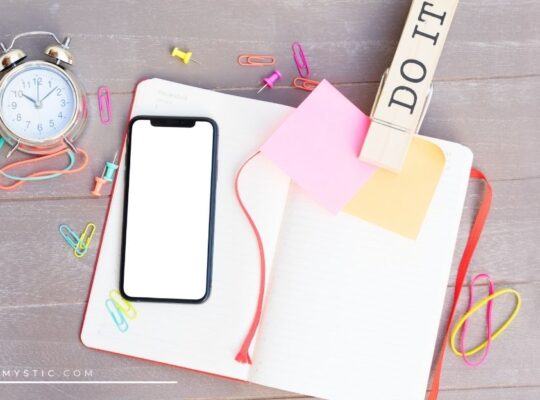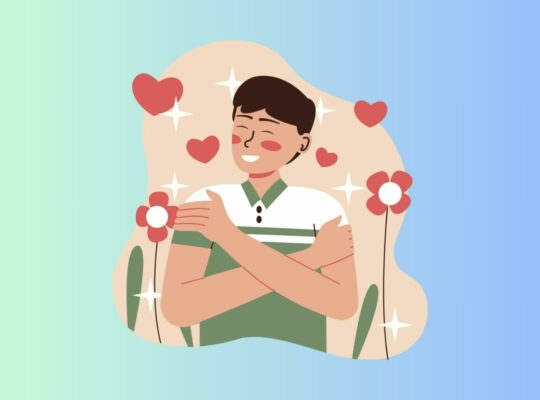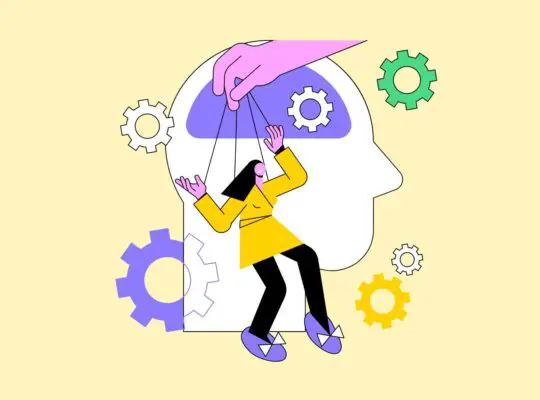“A rich social life benefits your mind, body and spirit.”
Social wellness includes who we take care of our relationship with ourselves as well as others. It includes the balancing of all the other aspects of well-being with your active participation in the world at large.
Social wellness encompasses who well you care for yourself, others, and your community. From social skills of communication and listening to engagement and enjoyment of your interactions with others, social wellness connects you to others in meaningful and powerful ways.
Here are our top 100 things you can do today to start promoting your social wellness in the new year.
100 Things To do To Promote Social Wellness
Cultivate good friendships Having friends is essential for your social wellness. Value the friendships you have and nurture those relationships to keep them healthy and strong.
Make new friends
If you are new to an area or starting over with your social circle, talk with neighbors, those in your church, co-workers, and people at the gym to find people with common interests. You can even find new friends online.
Pay someone a compliment
When you compliment someone else, they know you are paying attention. This can provide you with a positive way to start an interaction with them, as you make them feel better about themselves.
Get more exercise
Exercising boosts your self-confidence, which makes you more likely to reach out to new and old friends to strengthen relationships. Also, working out with friends is a great way to socialize and build common interests.
Get plenty of sleep
If you want to be at your best and able to interact with others as well as be there for them emotionally, you need to get enough sleep. Sleep improves your emotional wellness and allows you the energy to be a good friend to someone else.
Get better at conflict resolution
Conflicts are a part of life, and learning to turn disagreements into positive solutions can help you in all your social interactions. Conflict doesn’t have to end in hostility, and learning to handle conflict well is an essential life and social wellness skill.
Accept what you cannot change
If you have relationships in your life that are not serving your needs or are making you feel worse about yourself, it is time to let them go. Holding on to people just for the sake of the past is not a healthy reason to stay friends. Accepting that it is time to move on will leave room in your life for those worthy of your giving.
Notice how others make you feel
Relationships profoundly influence your emotional and physical well-being, so pay attention to how they make you feel. Notice how others treat you and how you treat them. Pay attention to when your relationships need a little TLC.
Practice gratitude
Identify the things in your life for which you are thankful. These are gifts you can share with others. Being grateful for your life allows you to model this for your friends, too.
Be a friend to yourself
Treating yourself kindly and warmly is vital to how you treat others. Making space for yourself in your life allows you to welcome and accept others into it when you are ready. Treat yourself as you would treat others, as well.
Get a pet
Taking care of an animal provides you with unconditional affection, lowers your stress, and helps you connect with something else. Plus, animals can become a common interest with new and existing friends.
Be compassionate
Being compassionate toward yourself and others is a large part of social wellness. Show people you are empathetic to their needs by actively listening, offering to help them and being a supportive friend when they need it.
Laugh together
Laughter is terrific for your emotional wellness, and laughing with friends bonds you together. See a funny movie, go to a comedy club, or play an entertaining game.
Live in the present
When you are continually talking about past mistakes or worrying about the future, it can be hard to have a productive friendship. Others don’t want to be with someone who is always down or how can’t enjoy their life right now.
Be yourself
Relationships should be built on honesty. When you are yourself with others, they learn to like and appreciate you for who you are. When you present something that is less honest, you will always wonder if they like you for you or for the image you project. Be yourself, and those who like you are the right friends for you.
Embrace silence
Some people are afraid that, if you aren’t always talking, there must be something wrong with your friendship. Silence can be a comforting thing, allowing people time to reflect on the conversation and the company. Don’t try to fill every silence you encounter.
Learn to apologize
If you have wronged someone or caused pain, even it is was unintentional, you need to apologize. Learning to say you are sorry, and doing it sincerely, shows others you value them and are willing to admit when you are wrong.
Get out from behind your screen
Face-to-face interactions are important, and while you may plan and catch up online now and then, healthy relationships need real, human interactions to thrive to their full potential.
Be flexible
Making plans with others, especially those who are busy just like you, can be difficult. Being flexible is key, as it shows you are willing to compromise. It is about the company, not the activity, so take turns picking the activity or be willing to sacrifice a little to make a particular time work for your plans.
Reconnect with someone
If you have neglected a friend or family member lately, reconnect with them now. It’s never too late to say, “I miss you,” and get reacquainted with someone, so reach out soon to tell say hi to someone you haven’t seen in a while.
Join a group
There are so many groups with common interests and hobbies. Find a MeetUp online or use other online tools to match with others in your area with common interests. Engaging with others who have common likes can be the gateway to new friendships or just be a chance for you to develop your social skills if you are building those.
Be interested in them Each of us is naturally egocentric, so it goes against our instincts to focus on someone else, but that’s what makes relationships stronger.
Ask about the other person, take a genuine interest in their life. Talking about yourself all the time is really boring for the other person, so be sure the interactions are mutual.
Model kindness
If you want people to know how to treat you, then use your behavior to show them. Be the kind of person you want your friends to be, which includes being kind and generous.
Be genuine
If you are saying nice things to someone just to flatter them, chances are your relationship isn’t built on trust or love. When you can genuinely compliment someone and appreciate how they are, you have the basis for a strong bond. If you are engaged in flattery, ask yourself who you are trying to impress.
Hold your friendships lightly
If you truly value someone in your life, they will have room to grow and change over time. When you hold them too closely and tightly, you smother their ability to become someone new in your friendship. Relationships that last are those that accept that the other is there because they want to be, not because you hold on and don’t let go.
Keep communicating
Opening the lines of communication and keeping them that way is essential to a healthy relationship. Make sure you talk honestly and openly with your friends, family, and partners.
Join a gym
Exercising regularly declares a priority in your life. Gyms, hiking clubs, and other fitness groups are excellent ways to find like-minded people to do things with while also maintaining a priority in your life, which is your health.
Become a better listener
Communication, especially in relationships, is not just about talking. More important than sharing your thoughts is listening to others. Be interested in the other person, ask them questions, and genuinely pay attention when they are speaking.
Volunteer
When you volunteer to help others, you are bolstering your own sense of self, which makes you more confident in your interactions with others. Volunteering can also bring you closer with someone who shares a similar passion, and it can allow you to interact with others with whom you don’t usually meet. Getting to know people from all walks of life and backgrounds is a crucial benefit to volunteering.
Be patient
When you are talking with a new or older friend, be patient with them. You never know what others are going through or experiencing. Don’t assume their attitude or emotions have anything to do with you, because chances are, they don’t. Allow them to share with you when they are ready.
Examine your choices
When building your social wellness, it’s important to evaluate your past decisions. Do you regularly pick friends and partners who respect you and your needs and choices, or do you tend to find people who put you at odds with your values? Making better decisions is key to improving unhealthy relationship patterns.
Perform a random act of kindness
Do something kind for someone in your life without expecting anything in return. Small actions can make a big difference for someone in need, and they will appreciate you immensely for showing that you care.
Learn to understand and accept your emotions
If you don’t know how to recognize and control your own emotions, you are not likely to be a very good friend to someone else. If you are using coping strategies to help you cope with unpleasant feelings, your friends won’t know how to support and help you. Permit yourself to feel those emotions, and learn healthy ways to manage them.
Don’t be afraid to take risks
When you challenge yourself to take small risks regularly, you learn to assert yourself as well as trust others who may be
able to help you. Taking risks in your relationships can be a great way to break through barriers and discover bonds you didn’t know existed before.
Take care of your body
Eating healthy foods, getting enough sleep, and avoiding unhealthy lifestyle choices all show you care about yourself, which means you are more likely to allow others to care for you, too. Being close to someone who continually exhibits self-destructive behaviors is hard.
Use better body language
Your non-verbal communication skills are just as necessary as your words. Practice using your body language to communicate how you feel to others, and pay attention to how others receive the cues you send with your body language.
Use “I” statements when trying to resolve problems
I-messages or I-statements are a useful communication tool when you are trying to resolve a conflict or work through a problem. You share how the situation is making you feel or causing a problem for you (I am having trouble with X) instead of blaming the other person for the situation (You did X). This allows you ownership of your feelings while also communicating your needs to the other person.
Be reflective of your skills as a friend
When you have had problems in the past with relationships, what have you learned from those experiences? Have you tried to consciously change your attitudes or behaviors to reconcile your past mistakes? Evaluating your skills and making changes is a part of your social wellness that many ignore.
Minimize contact with unhealthy people
We all know that one person at the office or that friend of a friend who just brings you down every time you see them. Whenever possible, avoid these types of people or minimize your contact with a quick hello and then move on.
Remember to be patient
Building relationships take time, and if you want your friendship to last, you can’t rush its growth. Be patient and allow your relationships to develop naturally and slowly as you get to know the other person and enjoy them for who they are inside.
Get out in the sun
Your body requires Vitamin D, which it naturally makes when your skin is exposed to the sun. Without this essential nutrient, your emotional self suffers tremendously, which can influence your outlook and emotional health. Getting enough sunshine each day helps you be a better person as well as a better friend to others.
Relax
Taking care of yourself means learning to relax and let go of your stress. Proper stress management means your relationships can be more engaging and fun and not just an emotional outlet to help you unwind. When you are relaxed, you are better able to focus on others and be a good friend or partner, too.
Ask for help
Part of social wellness is knowing when to ask for help and relying on others in your social circle to be there for you when you need them. Ask for help when times are hard or when you need to talk to someone.
Plan an outing
Whether you invite just one or several of your friends, plan something fun to enjoy with others. It can be a simple visit to someplace you love or a competition or game. Whatever it is, getting together with others boosts your social well-being.
Focus on your needs
Being socially well also includes asserting your own needs and desires in different situations. Be yourself no matter what group you are with and create boundaries that let others know what you are and are not comfortable with. This helps build trust among your relationships.
Schedule time with people
When things are bust, it can be hard to make time to spend with others. Put it on your schedule, create a plan, and honor that commitment. Nothing says you care more than showing up when you say you will.
Make it a regular event
If relationships are a priority for you, you may consider scheduling a regular night of the week or month that’s dedicated to spending time with friends. Maybe your time centers around a similar activity, or you rotate each time. It’s up to you, but a regular event gives you something toward which to look forward, too.
Grab a quick cup
Coffee boosts your mood, and taking even just a few minutes to enjoy a cup with a friend is a good opportunity to catch up, chat, and relax for a bit.
Encourage others to talk about themselves
Make your friend feel special by taking an active interest in their interests. Send them an encouraging message when you know they have something big happening in their lives, and learn a little something about their hobbies so you can participate in a conversation with them about what their passions.
Explore your similarities with others
While differences are what make us unique and special, similarities are where we can find connections. We are more alike than different, so build from those similarities to make new friends.
Stick to your values
Knowing your personal beliefs and values will guide you in making the best decisions in your life, including who to trust and include as friends. When you are clear on what you believe, you are more confident in your choices, including your relationships.
Engage your senses
Surrounding yourself with positive sounds and even scents that lift your spirits can enhance your mood and reduce your stress levels. Taking care of yourself is a critical component to your social well-being.
Use your strengths
Knowing your personal strengths can help you figure out ways to best support your friends and other relationships. If you are, for example, are great at being organized, you could offer to help your chaotic friend tame the clutter in her house. Pull from your strengths to provide help to those in your life in need.
Find inspiration in others
Learning about new pastimes, topics, and skills from your friends is a wonderful way to get to know them and also include them in your growth. You can be inspired by someone’s ability to overcome adversity or reach a goal, too.
Be friendly
If you want more friends, you have to be a friend. Being open and friendly to everyone invites more people into your life and helps others see you as approachable and welcoming.
Go out
Attending events, concerts, sporting events, or other types of shows can expose you to new people and new interests. Get out and have some fun!
Embrace diversity
If all your friends were the same, why would you need more than one? Learn to appreciate the differences among each person in your life and value everyone for the uniqueness they bring.
Look inward
If something is not working in a relationship in your life, consider what it is that is bothering you? Does this connection not align with your values? Does this person make you uncomfortable? Are there behaviors you are bringing that are making the situation worse?
Invite someone new to lunch
Making new friends can be hard, but it doesn’t have to be. If there is someone you have met recently that you’d like to get to know, invite them to have lunch. Lunch is a casual way to get to know someone, and if you don’t hit it off, you’ve only committed to a short meal.
Spend a little time alone
Recharging your batteries is sometimes necessary to maintain your healthy relationships. Get away from the distractions for a bit to refocus so that you can take the best care of yourself possible.
Say nice things to others
Affirming others’ ideas, giving praise for hard work, and delivering compliments all show people you care and are paying attention. We all like to hear nice things about ourselves, so be a role model and share your kind words with others.
Invite people over for a game night
Games are a fun way to engage lots of people, and a little competition is always sure to spark some fun times. There are many games suitable for larger groups, and game night can be an easy, low-risk way to get your friends together from time to time.
Find a new social activity
Get out of your rut and routine by finding something new to explore. Visit a part of your city you’ve never been, pretend you are a tourist for the day, or experiment with an event or activity you’ve never tried before. This can expand your opportunities to meet new people.
Make sure your romantic connections are healthy
Understand the signs of an unhealthy relationship and pay attention to the help of your partnership. If things are not right for you, move on.
Forgive
Learning to forgive yourself or others for past mistakes or hurt is important for being able to maintain healthy bonds. Holding on to anger or resentment does not solve any problems, so explore ways that you can forgive and move forward.
Appreciate others
Don’t be afraid to tell your family, partner, or friends how much you appreciate having them in your life.
Put your phone away
When you are with others, put your phone away and engage with them fully. Not only is this a sign of respect but it’s the only way to truly listen to and value the other person.
Don’t blame
Avoiding the use of blaming language for yourself as well as others opens you up to finding solutions to problems versus just being hurt or upset.
Check in with someone from your past
Call up someone you haven’t talked to in some time. It’s always good to catch up with those who you have not seen in a while.
Spread happiness
When you are positive and joyful, you can elevate the mood and outlook of others around you. Spread your happiness to others and they will be much more likely to mirror that happiness right back to you.
Manage your stress
When you can control and cope effectively with your stress, you are more enjoyable to be with. You also need to value your own personal wellness as much as you value others, so taking care of yourself should always be a priority in your social wellness goals.
Be realistic in your expectations of others
No one single person can be everything you want in life. Expect that each of your friends and family brings something unique and necessary to your life, and what they bring is enough.
Turn off the TV
Your bringing may be interfering with your ability to interact with your partner or others. Say no to TV and yes to interactions with others.
Sign up for a class
Not only is learning something new great for your mental and emotional development, but learning new things makes you more interesting and a better conversationalist. Plus, you might meet some interesting people in your class.
Improve your social skills
Maybe you have never had that many friends. Becoming a better friend is a skill you can learn just like any other. Set a goal for something you’d like to improve related to your social abilities, and set to work improving yourself.
Connect with your kids
The bonds you have with your children as crucial to your social wellness, as well. Focus on developing supportive, responsive, and consistent relationships with your children to teach them how to have positive social wellness, too.
Find or renew a passion
Whether it’s an old hobby you’ve let slide or something you’ve always wanted to try, this enhances your self-confidence plus gives you an added dimension you bring to any relationship.
Connect face-to-face
Instead of just messaging, make time to actually see people and spend time with them. While digital technologies make it easier for us to stay connected, they don’t always leave you feeling truly bonded with someone the way real-life interactions can.
Stay connected to your family
Family relationships are just as important as friendships and partners. Stay close with family, even if they live far away.
Stop worrying about your profile
Instead of worrying how perfect your life looks on social media, focus instead on the real relationships and interactions you have outside of the online world.
Find a lifetime partner
Sharing your life with someone else provides long-term satisfaction and joy, and it provides you with a trusting support system. Those with long-term partners enjoy better life satisfaction and even live longer.
Tell someone “I love you”
When you feel love for someone, be sure they know it. Don’t regret not sharing your true feelings with someone, because life is short and uncertain.
Be a good communicator
Excellent communication skills are necessary for all types of social interactions. IF you want to have better relationships, work on improving your communication skills, including how well you listen, accept others’ ideas, and deal with differences of opinion.
Work on your emotional intelligence
Emotional intelligence, also known as EQ, is your ability to recognize your own emotions as well as the feelings of others as well as use this information to guide your decisions and thinking. Building your EQ can help with your own emotional wellness as well as improve your ability to understand and relate to others.
Be open
We all have something to learn from others, even those with whom we disagree entirely. Be open to all interactions with others, and you could learn a valuable lesson about someone else or even yourself from everyone you meet.
Work on building stronger relationships
Whether you have one friend or one hundred friends, quality is more important than quantity. Focus on deepening your friendships and bonds rather than just acquiring more people in your life.
Live in the moment
Relationships can become strained when you are always focused on events of the past or what someone else may or may not have done to you in the past. Focus on right now and what your relationships are teaching you today, and you’ll find your social bonds to be more satisfying.
Touch someone
The physical contact of hugging, holding hands, or touching others is very important for cementing your bond. Not only is touch good for your mental health but it also supports the link between you and someone else.
Stop taking things personally
Most often, the things that upset us about someone else has very little to do with us. Learning to detach yourself from someone else’s actions or words can help you diffuse negative emotions and deal more effectively with the situation.
Start your day with something positive
When you begin each day doing something you love or an activity that excites you, you are attending to your personal need as well as setting the tone for how you will interact with everyone you see today.
Be empathetic
Hearing and respecting people makes them more comfortable with you and more likely to open up to you. Practice empathy whenever possible with all your friends and loved ones.
Work on yourself
When you have a healthy relationship with yourself, you are more likely to have healthy relationships with others. Practice accepting and loving yourself, which makes you a better partner and friend to others.
Listen first, then talk
When you join an already engaged group in a discussion, be sure you listen before jumping into the conversation. Introduce yourself when there is a break in the conversation and wait until an appropriate time to interject your thoughts or opinions. No one likes a know-it-all.
Share something personal
You can build trust with another person by sharing something personal about yourself with them. It doesn’t have to be your deepest, darkest secret, but sharing personal details and goals can show you trust someone else to respect your privacy.
Share your skills with others
Teaching someone else something you know how to do is a great way to help them and build a better bond together. Sharing your skills builds your confidence and also makes the other person’s day a little better, too.
Show your appreciation
Paying attention to how others help you, and showing your appreciation, is a great social skill. Think of all the ways strangers and others help you in a given day. Say thanks to your bus driver, the lady at your coffee shop, the man who held the door for you, and anyone else you encounter today who does a good deed.
Do what you say
Keeping your commitments is an important part of being a good friend or partner. Set realistic expectations for yourself and don’t commit to something you can’t make.
Stay connected electronically
When you have friends or loved ones who live far away, schedule a time to video chat with them so you can stay in touch and feel connected to them from afar.
Connect your social wellness to other parts of your life
When you combine your efforts to maintain your physical, emotional, and mental wellness with your social wellness goals, you are benefiting all aspects of your life and creating a social network that values your total well-being.
Be clear about your expectations
Others want to you what you expect of them in their relationships with you. Be sure you are clear about your expectations for communication, commitments, boundaries, and other aspects of personal interaction, so others will know how to be the best friend possible to you.







